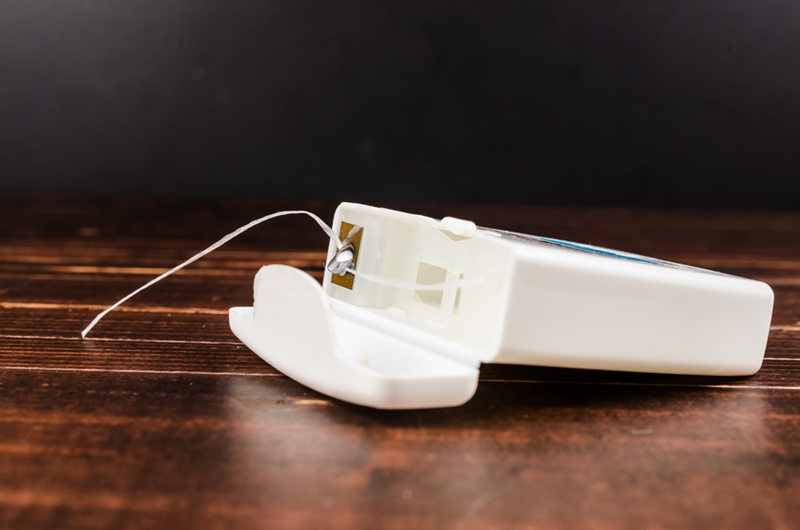In a series of recent articles, we've talked a little bit about the fascinating history of some major dental tools, such as toothpaste, and tracked their development from the very basic to the height of modern oral health. You might have thought that the toothbrush would be the oldest method that we humans have had for keeping our teeth clean, as it dates back to Ancient Egypt. In fact though, toothbrushes play second fiddle to dental floss in terms of age.
In this article, we'll take a look back at the origins of dental floss, explore how it's developed over the years and discuss a few aspects of the more contemporary varieties.

The history of dental floss
The history of dental floss stretches back to before we humans even existed, or at least before Homo sapiens. It turns out that flossing was first adopted by Neanderthals, and the frequency of its use can be seen in the grooves visible on the teeth of many fossilised remains. While early dental floss would most likely have been horse hair, it's still incredible to think that taking good care of our teeth has been prioritised for so many thousands of years. And if a Neanderthal could floss every day, so can you!
Dental floss did actually fall out of favour for a while, but fortunately for gums everywhere it was reintroduced by American dentist Levi Spear Palmer in 1815. The main material was silk, which sufficed for a century or so before being replaced by nylon during World War II as a cheaper and stronger alternative.
Dental floss today
Today, there are literally hundreds upon hundreds of different types of dental floss. You can have a range of flavours if you're so inclined, but the principal choice to make is whether you're going to go for a waxed, or an un-waxed floss. Waxed is typically easier to get into the tight gaps between certain teeth, but for most of us it comes down to what feels nicer. It really doesn't matter though, as long as you're flossing properly every day!
There are also specialised flosses available which cater to those with wires or braces in their mouth. If you feel that you need a bit of help choosing the right floss for you, be sure to get in touch with your local dentist. Flossing is crucial for keeping both your teeth and your gums free from damaging bacteria, so take a tip from the Neanderthals and get yourself into the habit.
